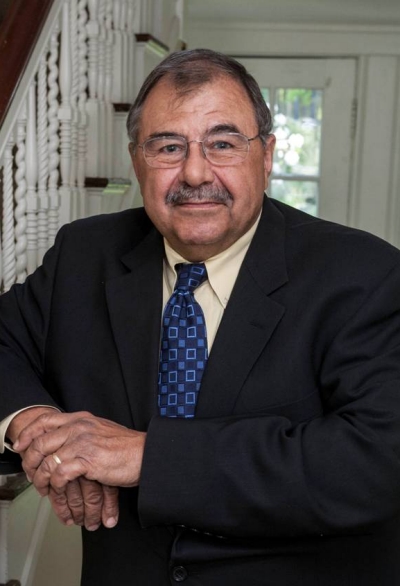By
Professor of Sociology Paul G. Schervish, director of the Center on Wealth and Philanthropy (CWP), will be honored with the 2013 Distinguished Career Award presented by the Altruism, Morality, and Social Solidarity Section of the American Sociological Association.

The award, given annually to an individual who has made significant and sustained contributions to the field, will be presented at the association’s annual meeting in New York City in August.
One of the nation’s leading scholars at the forefront of philanthropic studies, Schervish has spent more than 30 years in research and teaching related to wealth and philanthropy, specifically on the patterns and dynamics of donor motivation and behavior, and is widely credited with helping to shape the direction of the field.
"Paul Schervish's work is outstanding in every respect," said Vincent Jeffries, chair of the award committee. "He has been highly productive throughout his scholarly career, writing extensively on topics such as giving, volunteering, philanthropy, wealth, economic morality, and caring. He has made significant contributions to methodology, the acquiring of knowledge, policy, and theoretical development in these areas. His work is comprehensive, original, and important."
“I am honored to receive this award, even though I am but one of many who have brought the field of research on wealth, philanthropy and spiritual life to where it is today,” Schervish said. “Our leading question at the outset of our work at the center has remained central for three decades: how do the personal and financial resources of individuals become mobilized by their purposes and aspirations to unite love of God, love of neighbor, and love of self?
“Combining statistical, interview, survey, and spiritual analyses, we have enjoyed the discovery, communication, and application of knowledge, the desire and dream of every scholar.”
“This is great news for Paul, for our Sociology Department and for Boston College,” said Schervish’s longtime colleague Joseph F. Quinn, professor of economics and incoming interim provost and dean of faculties. “Paul has been a leader in the field of philanthropy research for decades, and is often the only academic on lists of the most important people in philanthropy. I am delighted that the ASA has honored his extensive and very important work with this well deserved Career Award.”
“I can’t think of a more important public scholar on the topic of wealth and philanthropy,” said Dwight F. Burlingame, director of academic programs and professor of philanthropic studies at the Indiana University Lilly Family School of Philanthropy. “His publications are not only required of college students but also of practitioners who want to understand the donor-recipient relationship.”
“Paul brings a unique mix of skills to his endeavors, and he lends insight, creativity, and innovative concepts to both his research and his leadership in the field,” said CWP Senior Associate Director John J. Havens, Schervish’s longtime research partner.
“Paul coined the term ‘moral biography’ to describe his exploratory methodology to reveal donors’ histories of involvement with caring and philanthropy as part of their life history. His own moral biography has been exemplary in guiding the development of the field. I think of him as a pastor to the entire field of philanthropy and am grateful for the opportunity to be associated with his pastoral efforts.”
Among Schervish’s most prominent reports are those focused on wealth transfer and its corresponding impact on philanthropy, based on studies conducted with Havens using proprietary CWP projection models. Millionaires and the Millennium: New Estimates of the Forthcoming Wealth Transfer and the Prospects for a Golden Age of Philanthropy, which in 1999 estimated wealth transfer over the next half century, produced some of the most widely cited data in the field. A revised model that took into account the recessionary period of 2007-2011, Great Expectations: A New Model and Metric for the Continuing Wealth Transfer, was released in 2012.
CWP also has produced regional reports projecting wealth transfer and its impact for charitable organizations, including for St. Louis, Washington, DC, North Dakota and Rhode Island, and several for Greater Boston commissioned by the Boston Foundation, the most recent released in March 2013.
Other major research projects include direction of the “Study on Wealth and Philanthropy,” an examination of the strategies of living and giving among 130 millionaires, and “The Contradictions of Christmas: Troubles and Traditions in Culture, Home, and Heart.” With Havens and Mary A. O’Herlihy, he produced the 2001 High-Tech Donors Study, which interviewed high tech executives to get to the heart of an emerging style of philanthropy. In the previous year, Schervish and Havens, in conjunction with Bankers Trust Private Banking, published the Bankers Trust Survey on Wealth with Responsibility, a study of wealth holders with net worth in excess of $5 million regarding their charitable giving and volunteering, attitudes about social issues, socially responsible investing, trust and estate planning, and the transfer of values to heirs.
“I have unlimited gratitude for my long-time humane and competent colleague, John Havens, and for Thomas B. Murphy ’50, who initiated our research, funded it generously, and contributed invaluable insights over the years,” said Schervish, who also credited support from administrators at Boston College with helping CWP to thrive, and the numerous foundations that have funded its work, including the Lilly Endowment, Inc., the Kellogg Foundation, the Templeton Foundation, the Wieler Family Foundation, and the Dakota Medical and Impact Foundations of North Dakota.
Named five times to the NonProfit Times annual “Power and Influence Top 50,” which acknowledges the most effective leaders in the non-profit world, Schervish has received the Virginia A. Hodgkinson Research Prize awarded by ARNOVA for the best book on philanthropy and the John Grenzebach Award for Outstanding Research in Philanthropy from the Council for Advancement and Support of Education.



